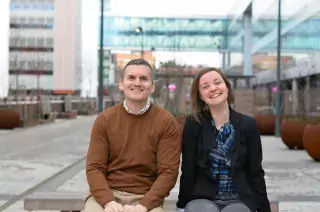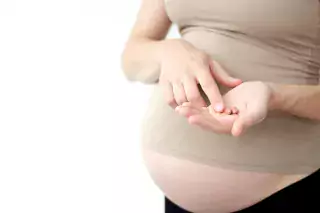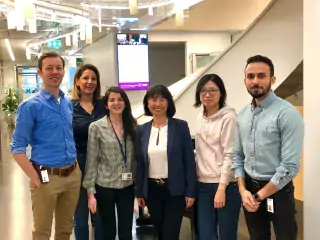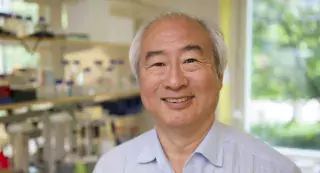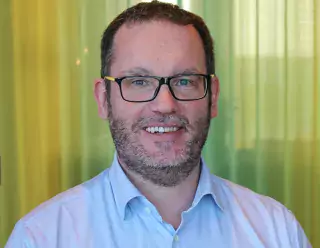News archive
On this page you can search for older news. Choose a topic, type of news or enter your own keyword to filter out news.
View compact
Researchers at Karolinska Institutet have traced the neurons that send projections to the medial prefrontal cortex in the mouse. The 3D location of the input neurons have been mapped throughout the brain.
News
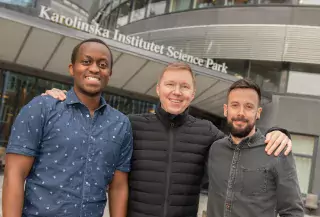
Even premature babies carry anti-viral antibodies transferred from the mother, researchers at Karolinska Institutet in Sweden report in a paper on maternal antibodies in newborns, published in the journal Nature Medicine. The results should change our approach to infection sensitivity in newborns, they say.
News
Each year MedTech Magazine appoints the 100 persons who most affect and contribute to care, patients' health and the availability of medical technology to citizens and patients.
News
With the start of 2019, the Karolinska Genome Engineering facility (KGE) has opened its doors as a core facility for researchers from both within and outside of Karolinska Institutet and Karolinska University Hospital. The facility, led by Bernhard Schmierer, is located in Biomedicum 9B at the Department of Medical Biochemistry and Biophysics, and provides various gene editing services in cells.
News
PhD student Sara Causevic and researcher Helena Nordenstedt at the Department of Public Health Sciences and student Wiebke Mohr at the Department of Learning, Informatics, Management and Ethics started the Women in Global Health Sweden Chapter as a response to the Call to Action on Gender Equality.
News
Karolinska Institutet now facilitates for all educational programs to use digital examinations. Digital examinations are legally secure and efficient as well as allows for new possibilties for teachers and course administrators to develop the education programs.
News
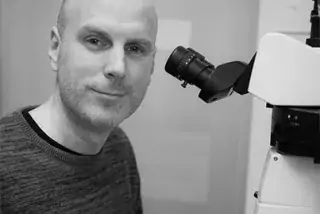
Olov Andersson, docent at the Department of Cell and Molecular Biology at Karolinska Institutet, is the recipient of The Leif C. Groop award for outstanding research for his research in zebrafish that could lead to new treatments for diabetes. Awarded by the Lund University Diabetes Centre and sponsored by Novo Nordisk Sweden.
News
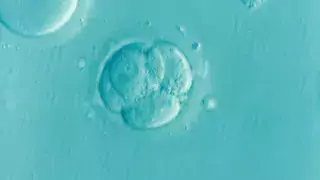
By applying gene analysis to individual cells from early mouse embryos, researchers at Karolinska Institutet in Sweden have discovered previously unknown cellular stages of fetal development from fertilised egg to living being. The study is published in the scientific journal Cell Reports.
News
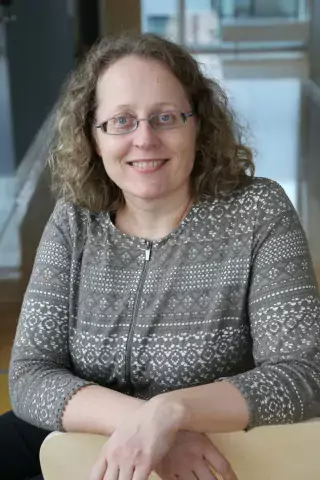
Researchers at Karolinska Institutet in Sweden have discovered a new and rare skeletal disease. In a study published in the journal Nature Medicine they describe the molecular mechanism of the disease, in which small RNA molecules play a role that has never before been observed in a congenital human disease. The results are important for affected patients but can also help scientists to understand other rare diagnoses.
News
Professor Sven-Erik Dahlén, IMM, participates in the co-ordination team of the IMI project 3TR that was recently approved for funding by the European Commission.
News
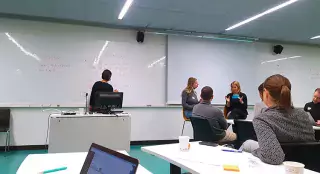
The workshop ”Build program logic models” for innovations in the programme Let the patients drive! Implementing patient-driven co-care innovations was held on February 12th.
News
The first Dan Grandér memorial prize for best thesis at Karolinska Institutet in Cancer Research has been awarded to Dr Nicholas Valerie, Department of Oncology-Pathology.
News
Hello, Galit Andersson, who recently defended a doctoral thesis at the Department of Public Health Sciences, Karolinska Institutet. For your thesis you conducted large surveys of transgender people and people living with HIV in Sweden to assay their quality of life.
News
Hi there Gylfi Ólafsson! You recently defended your thesis "Health economic aspects of low back pain" at the Department of Learning, Informatics, Management and Ethics. What is it about?
News
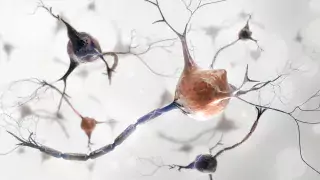
What happens in the brain when we feel discomfort? Researchers at Karolinska Institutet in Sweden are now one step closer to finding the answer. In a new study published in the journal Molecular Psychiatry they identify which pathways in the mouse brain control behaviour associated with aversion.
News

Learning what is dangerous by watching a video or being told (known as social learning) has just as strong an effect on our decision-making as first-hand experience of danger, researchers at Karolinska Institutet in Sweden report. The results of the study, which is published in the journal PNAS (Proceedings of the National Academy of Sciences), can help to explain why we take irrational decisions.
News
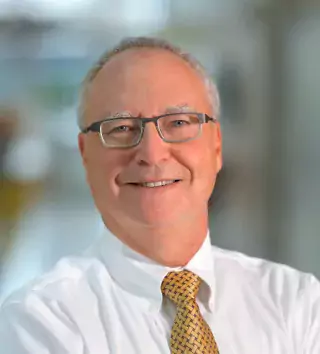
Professor Mitchell Lazar at Perelman School of Medicine, University of Pennsylvania, Philadelphia has been selected as recipient of the Rolf Luft Award 2019.
News
Knowledge of a newly discovered genetic disorder, which means that a person cannot produce the protein TXNIP (thioredoxin interacting protein) in their cells, can open for the development of new diabetes drugs. This is shown in a study from Karolinska Institutet published in the journal Diabetes.
News
Using puzzle pieces from four different DNA analyses, researchers at Karolinska Institutet have been able to map three extremely complex chromosome aberrations. This has given families answers about the cause of their children’s serious symptoms. The study was published in the scientific journal PLOS Genetics and the goal is to produce a test to be used in the clinic.
News

